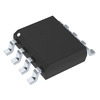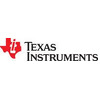Manufacturer Part Number
MC79L12ACD
Manufacturer
Texas Instruments
Introduction
The MC79L12ACD is a fixed-voltage negative linear voltage regulator from Texas Instruments. It is designed to provide a stable and reliable power supply for various electronic circuits and systems.
Product Features and Performance
Provides a fixed -12V output voltage
Capable of delivering up to 100mA of output current
Operating temperature range of 0°C to 125°C
High power supply rejection ratio (PSRR) of 42dB at 120Hz
Integrated over-temperature and short-circuit protection features
Low voltage dropout of 1.7V at 40mA output current
Single-regulator design in an 8-pin SOIC package
Product Advantages
Reliable and stable voltage regulation
Thermal and short-circuit protection for enhanced safety
Small and compact package for space-constrained applications
Ease of use and integration into various electronic designs
Key Technical Parameters
Input Voltage Range: -27V (max)
Output Voltage: -12V (fixed)
Output Current: 100mA
Voltage Dropout: 1.7V @ 40mA
Power Supply Rejection Ratio (PSRR): 42dB (120Hz)
Operating Temperature Range: 0°C to 125°C
Quality and Safety Features
RoHS3 compliant for environmental safety
Integrated over-temperature and short-circuit protection
Compatibility
The MC79L12ACD is a standard negative linear voltage regulator and is compatible with a wide range of electronic circuits and systems that require a stable -12V power supply.
Application Areas
Analog and digital circuit power supplies
Instrumentation and test equipment
Industrial control systems
Telecommunications equipment
Consumer electronics
Product Lifecycle
The MC79L12ACD is an established and widely used product in the Texas Instruments portfolio. It is not currently nearing discontinuation, and replacement or upgrade options are available if needed.
Several Key Reasons to Choose This Product
Reliable and stable voltage regulation
Compact and space-efficient package
Integrated thermal and short-circuit protection for safety
Wide operating temperature range and compatibility
Ease of integration and use in various electronic designs
Availability of replacement or upgrade options if needed





 MC79L12ACLPRTexas Instruments
MC79L12ACLPRTexas Instruments MC79L06F-TPMicro Commercial CoIC REG LINEAR -6V 100MA SOT89
MC79L06F-TPMicro Commercial CoIC REG LINEAR -6V 100MA SOT89